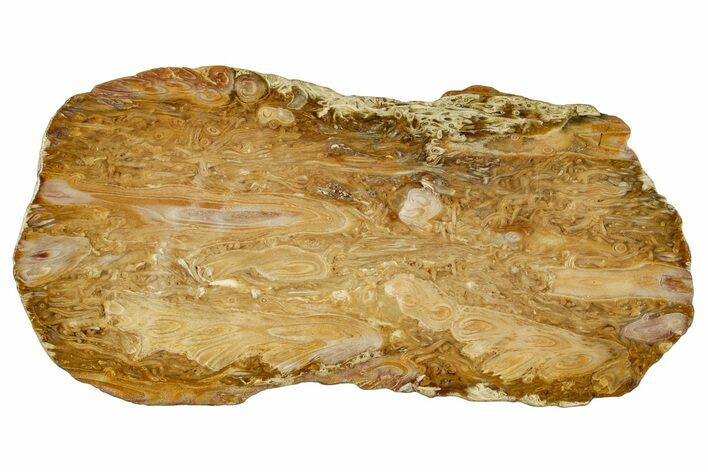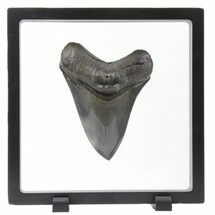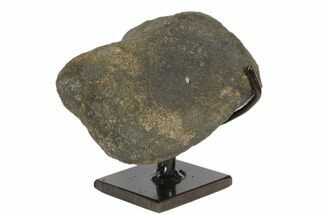This Specimen has been sold.
3.4" Cretaceous Petrified Tree Fern (Tempskya) Slab - North Carolina
This is a rare, 3.4" wide polished slab of petrified tree fern (Tempskya westii) from Cretaceous deposits in Harnett County, North Carolina. It has been cut flat and polished to a glossy finish on both sides, highlighting the incredible internal structure of the plant which include the strings of leaf petioles towards one edge. This is truly a museum quality specimen.
This specimen was collected in the early 70's. It comes with an acrylic display stand.
This specimen was collected in the early 70's. It comes with an acrylic display stand.
Tempskya is a genus of extinct tree ferns from the Late Cretaceous. They grew as tall as 15 feet (4.5 meters) in ancient temperate floodplains and swamps. Tempskya species grew masses of adventitious roots that crisscrossed with each plant's stems and leaves, creating a tangled-looking mat of roots and stems called a false trunk. However, leaves grew mostly towards the tops of the tree ferns, suggesting a look that one notable collector calls a "tapering candle with a fuzzy top". This unique look and structure is preserved in the patterns in petrified specimens, where bullseye-shaped stems and roots, horseshoe-shaped leaf petioles, and even cellular structures can be visible. North Carolina's petrified Tempskya specimens are often colored brown and various warm tones.
Petrified specimens have been found around the world, but were first found in a gravel pit in North Carolina in the late 1960s. The site was closed to the public in the mid-1970s, but has recently reopened to researchers and rockhounds alike.
Petrified specimens have been found around the world, but were first found in a gravel pit in North Carolina in the late 1960s. The site was closed to the public in the mid-1970s, but has recently reopened to researchers and rockhounds alike.
SPECIES
Tempskya westii
AGE
LOCATION
Harnett County, North Carolina
SIZE
3.4 x 1.7", .2" thick
CATEGORY
ITEM
#252007
We guarantee the authenticity of all of our specimens.
 Reviews
Reviews












